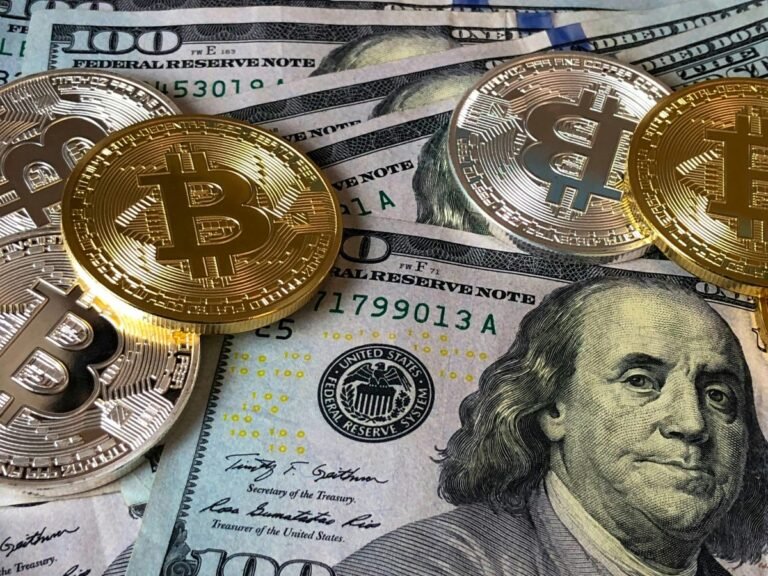Over the past few years, cryptocurrency has really emerged to be one of the most powerful and innovative financial assets that have gained the interest of investors, economists and the public.
Of all the propositions that have been made regarding cryptocurrencies one of the most popular is that of cryptocurrencies being an inflation hedge.
This is because more and more fiat currencies are being debased and more and more people are turning towards the cryptos to preserve their wealth. But the question remains: In the present era, is it right to use cryptocurrency as a way of safeguarding our wealth or is it just an extravagant investment?
Understanding Inflation and Traditional Hedges
Inflation is a process of gradual increase in the price level of most goods and services in an economy thus really eroding the purchasing power of money. Inflation is normally defined as a process through which the price of most goods and services in a given currency is raised. To keep their wealth, investors in the past used tangible assets including gold, property and shares since these are not considered to depreciate when the inflation rate is high.
Gold, the best protection against inflation really and widely known as the ultimate hedge, has been a store of value for some time now. Gold is scarce and durable; hence it is a perfect asset for anyone willing to invest in the storage of their riches during a financial crisis. Real estate and stocks are some the examples of tangible assets that tend to appreciate over the channel of time and hence work a pyramid upside down to demoralize the fiat currencies.
The Case for Cryptocurrency as an Inflation Hedge
Bitcoin is sometimes called ‘digital gold’ and for good reason: the number of bitcoins that will ever exist is limited and nobody can control its creation. The overall number of bitcoins that can be mined is capped at 21 million and that is the ceiling that can be reached. This is the same as gold which cannot be artificially produced and, therefore, both are free from inflation.
If you are an advocate of cryptocurrency, you will also argue that cryptocurrency is an ideal inflation hedge since it is not governed by central banks and other government authorities. Fiat currencies are on the other hand issued by central banks and are not fixed in terms of supply while the supply of cryptocurrencies such as Bitcoin is pre-determined. The overall number of these coins available in the market is capped and on the other hand, the demand has been increasing in the past few years as people see these as similar to gold, a store of value. This rivalry has also led more people to look for certain niches, for example, bitcoin casinos for Brits and the combination of cryptos and gaming makes it possible for individuals to find both security and growth. Bitcoin casinos are an especially popular niche because they enhance a regular online casino experience by providing quick transactions, anonymity and lower costs in a way that regular online casinos cannot achieve. This also allows for a practical use of cryptocurrency and it allows people to connect with it more in the same way that people regularly spend their national currency.
Also, the high level of globalization and the liquidity of cryptocurrencies can become an effective tool against inflation. As a result of the globalization of the market, it has become possible for anybody at any time to buy or sell cryptocurrencies, which means this is a liquid and accessible asset class. In countries that are experiencing hyperinflation as well as other economic vices such as Venezuela and Argentina, Cryptocurrencies have acted as a means of preserving wealth for the people.
The Challenges and Risks of Using Cryptocurrency as an Inflation Hedge
But there are also several questions and potential problems that can be pointed out with regard to the potential of the cryptocurrency to serve as an inflation hedge and among the main issues, it is possible to identify the high price fluctuation of cryptocurrencies. Gold, on the other hand, does not have such a huge price range change, while cryptocurrencies, for instance, have some of the highest volatility. For instance, the price of one Bitcoin has been unstable, it was at $5,000 in March 2020, it soared to above $60,000 in April 2021 and plummeted to $30,000 in a few months.
This makes cryptocurrencies a very volatile asset for the people who aim to invest in them as an inflation hedge. Here, there is potential for high returns which on the other hand means that there is also potential for high losses. One should be willing to lose the money and should set the risk factor before investing a huge amount in the cryptocurrency.
Comparing Cryptocurrency with Traditional Inflation Hedges
Presenting cryptocurrency as an inflation hedge in comparison with other classical assets such as gold, real estate and stocks, you can really see each of them has its advantages and disadvantages. Gold has been a stable commodity over the years and has been known as a valuable commodity to hold on to in times of inflation. Real estate investments are less liquid than stocks and bonds, but the investor gets a physical asset that can generate rental income and thus is suitable for the long-term strategy.
Likewise, the use of Cryptocurrency has a high potential of generating high returns and can be accessed globally; nonetheless, it is characterized by high risks and volatility. Some investors believe in the possibility of reaping big from cryptocurrencies, therefore they use it as an asset in their investment portfolio but for the risk-averse, there are other forms of investment such as gold and property which can really offer stability in the face of inflation.

